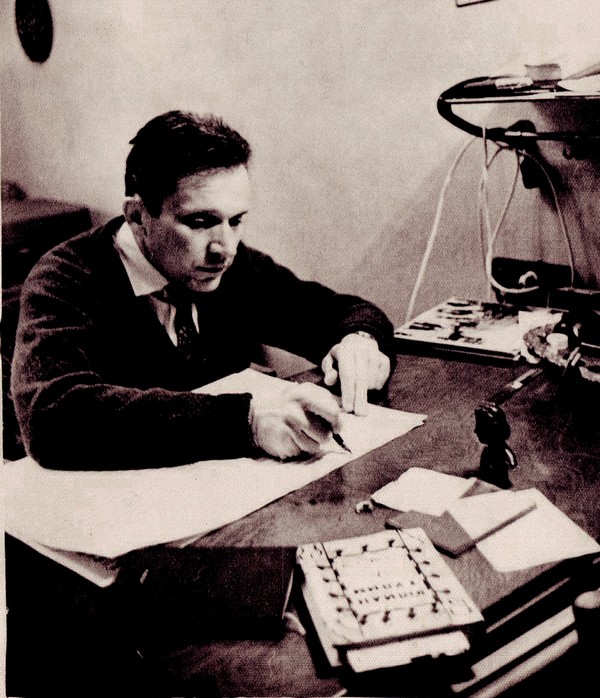Mieczysław Weinberg (1919 - 1996)

The composer and pianist Mieczyslaw Weinberg, the son of a Jewish theatre musician, came into contact with musical practice early in life; already at the age of twelve, he studied piano at the Warsaw Conservatory with Józef Turcynski. He seemed assured of a brilliant concert pianist’s career – having already been invited to America – when the Second World War broke out. In 1939 Weinberg fled Warsaw, where his family was murdered shortly afterwards. He studied composition at the Minsk Conservatory with Vassili Zolotaryov, but again was forced to flee Hitler’s troops, this time to Tashkent (Uzbekistan), where he worked as a rehearsal pianist at the opera. It was here that he became acquainted with the Jewish actor and theatre director Solomon Michailovich Michoéls (1890-1948), whose daughter Natalia Vovsi he married. Weinberg’s talent did not go unnoticed in Tashkent; Dmitri Shostakovich heard about him in Moscow; when he was sent a copy of the younger composer’s First Symphony, Op. 10 (1942), he was so impressed that he immediately arranged a relocation permit in the capital city for the young couple so that Weinberg might have a better future. Shostakovich considered Weinberg to be one of the best composers and pianists. Their relationship, which lasted for over 30 years, was marked by mutual friendship and respect. They showed each other each new composition and often presented these works – in versions for piano four-hands or on two pianos – for the circle of their colleagues or in public.
Like most creators of culture, Weinberg felt Stalinist terror after 1948 (he was imprisoned for three months in early 1953), but was able to live relatively unhindered in the background as a freelance composer. Since he refused to become a party member and join the campaign against ‘formalism’ he had relatively little official support during the period up to and including the 1960s. He earned his living with incidental compositions. When his works were performed, it was usually at the initiative of renowned interpreters such as Emil Gilels, David Oistrach, Maria Grinberg, Leonid Kogan, Mstislav Rostropovich, Alexander Gauk, Kirill Kondrashin, Kurt Sanderling, the Borodin Quartet and others. Today, Weinberg’s extensive oeuvre is enjoying increasing international popularity. Weinberg was a People’s Artist of the USSR (1980) and was awarded the State Prize (1990).
Weinberg was an extremely productive composer. From film and circus music to tragic grand opera, from simple melodies with easy accompaniments to complex twelve-tone music, he was a master of all forms, genres and stylistic directions. With virtuosity and elegance, but always judiciously and with balance, he used elements of Jewish, Polish, Russian and Moldavian folk music. He developed a very personal style with a clear, almost classical architecture. His melodic language – at times introverted and meditative-reflective, at other times full of effervescent joy of living – is particularly noted for its special richness. –
(Ulrike Patow in MGG, Vol. 17, p. 688ff.)
